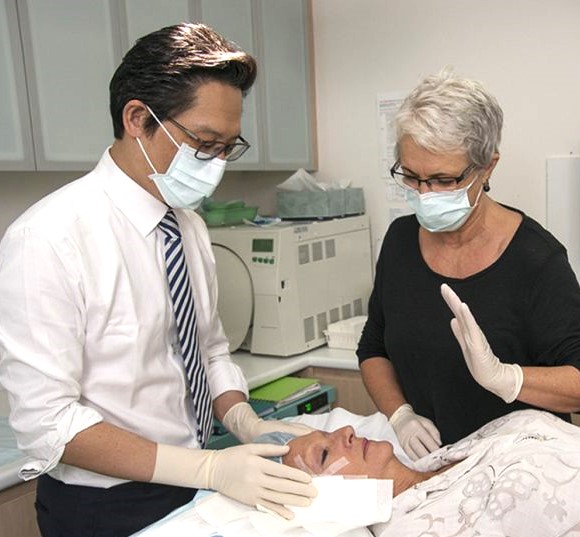The macula is a small area found in the centre of the retina. Its role is vital, providing fine detail to all central vision during important activities such as reading, writing and driving.
As with the rest of the body, with time, the eye ages. When the retina and macula age, degenerative diseases can develop. Aging of the macula is known as Aged-Related Macular Degeneration (AMD). It generally occurs in people aged over 50. Known risk factors include smoking and family history of the disease. The most common sign of early Macular Degeneration is drusen – yellow deposits of fatty material under the macula. These can only be seen during an eye examination.
There are 2 forms of macular degeneration – dry and wet. Dry AMD accounts for 85-90% of all cases. Wet AMD is the most severe form and accounts for 10-15% of cases
Dry Age-related Macular Degeneration
In dry macular degeneration, the macula becomes gradually thinner. Eventually, most of the macula can become worn out. Vision loss is gradual.
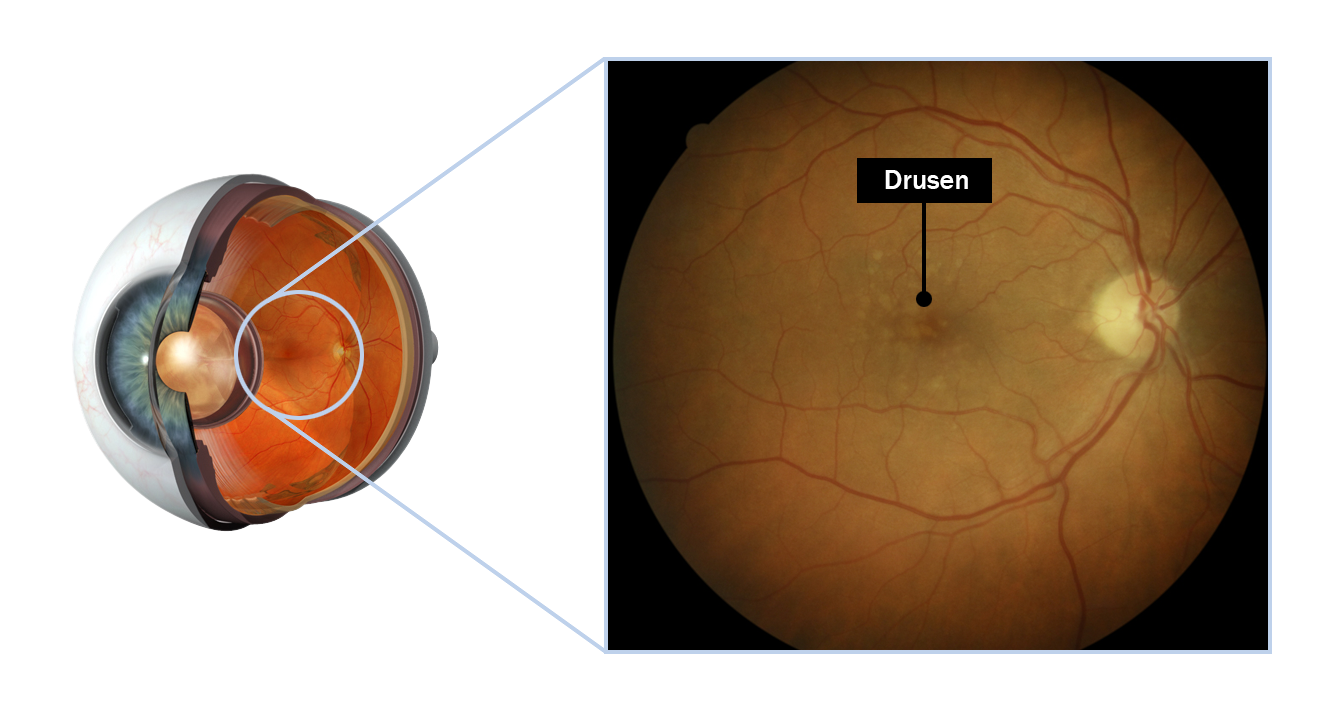
Wet Age-related Macular Degeneration
With wet macular degeneration, new blood vessels develop under the macula. These blood vessels are fragile and can leak fluid and blood. This causes swelling and eventually scarring. Wet macular degeneration leads to a rapid loss of vision.
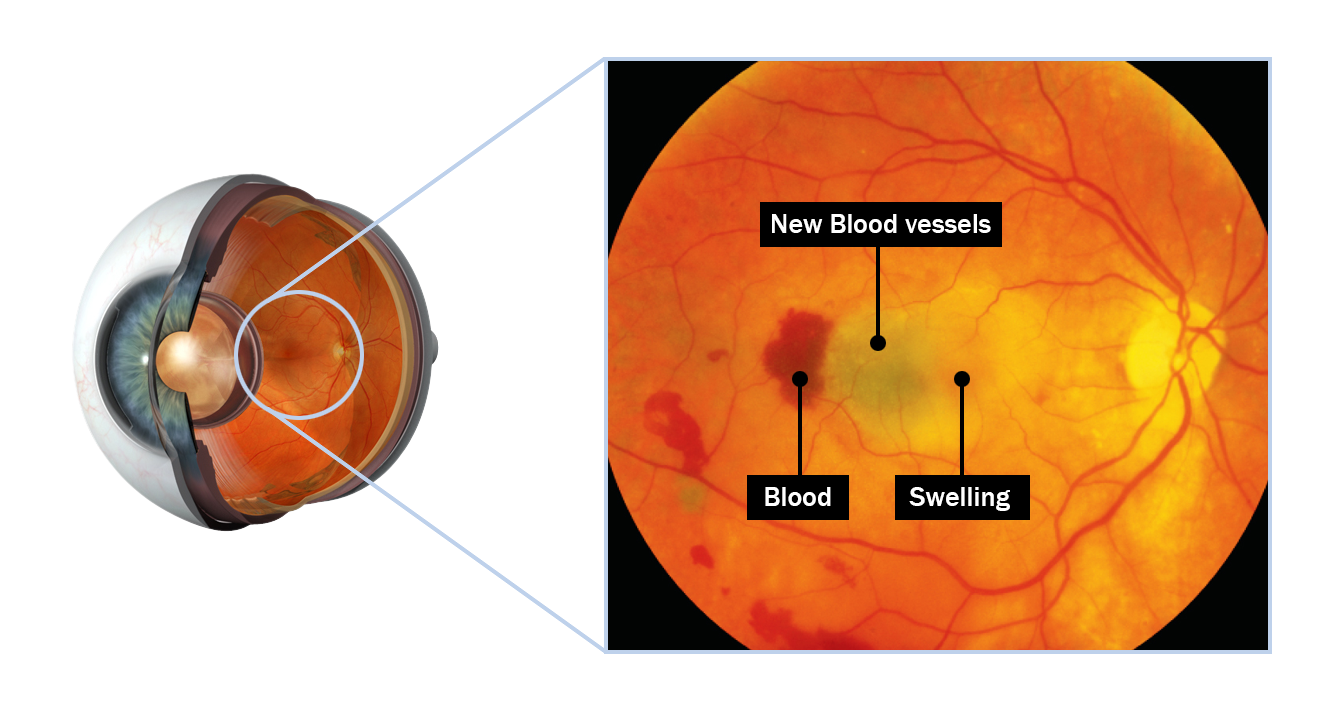
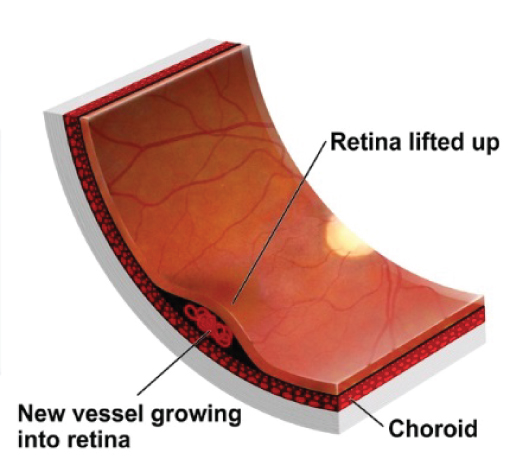
Important symptoms of AMD
- Blurred vision
- Distortion
- Gaps in vision
- Faded colour
- Loss of contrast

Confirming the diagnosis
Normal OCT scan of the macula.

Swelling and distortion of the macula.

Fluorescein angiogram shows the location of leaking new blood vessels with fluorescent dye.
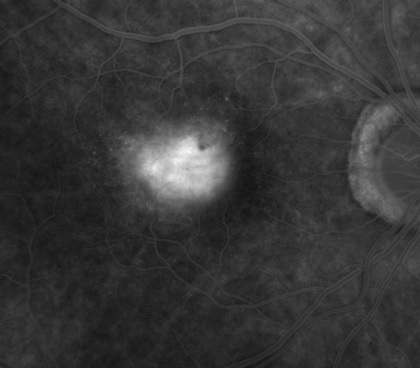
The importance of early detection and prevention for AMD
Early detection of AMD is crucial in preventing permanent loss of vision. Dr Beaumont has lead the way with extensive research into dietary changes you can make that have been scientifically proven to slow down the progression of AMD. The information sheet found on this link will provide you with more information. How to Minimise Loss of Vision from AMD
Dietary Advice for AMD
You should eat:
- Leafy, green vegetables e.g. spinach, kale, broccoli
- Fish 2-3 times per week
- Use olive oil for cooking (no seed or vegetable oils)
- Fresh nuts (almonds, walnuts, brazil nuts)
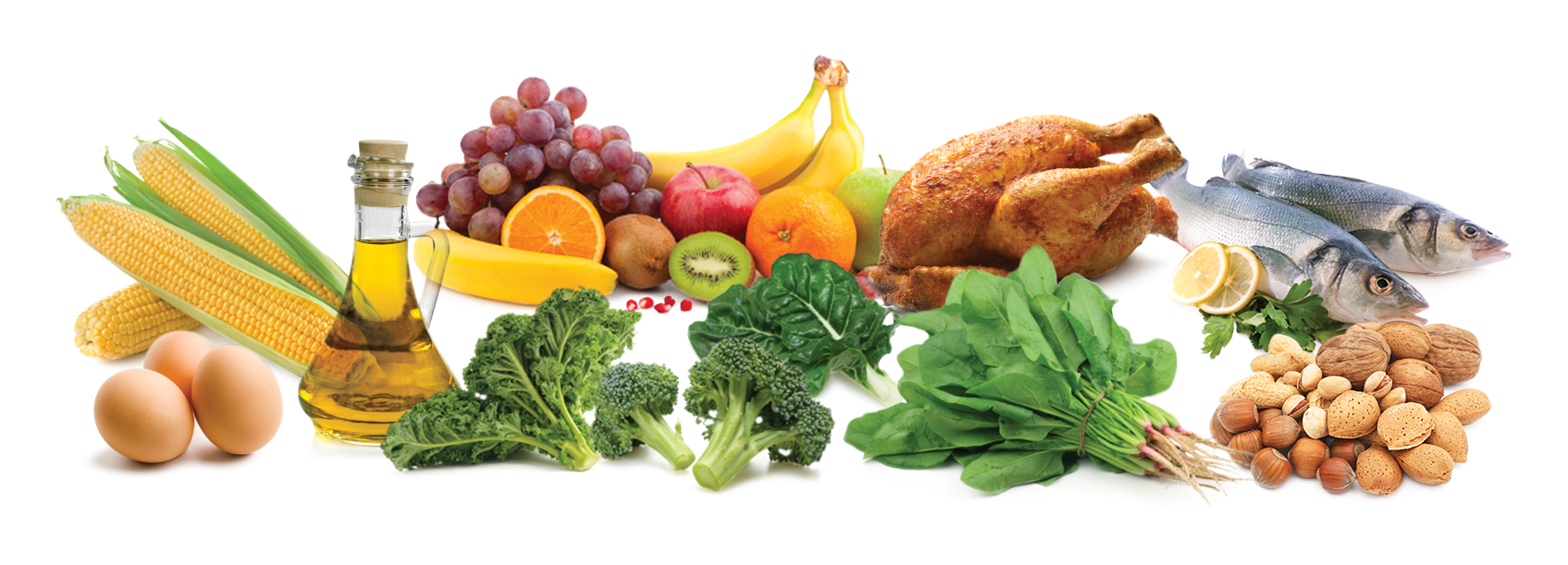
You should avoid:
- Smoking
- Fatty, processed foods
- Vegetable oils
- Eat less red meat
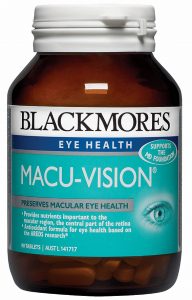
At home, it is recommended that you use an amsler grid daily to monitor any changes to your vision. Remember to check each eye separately and to look for any distortion.
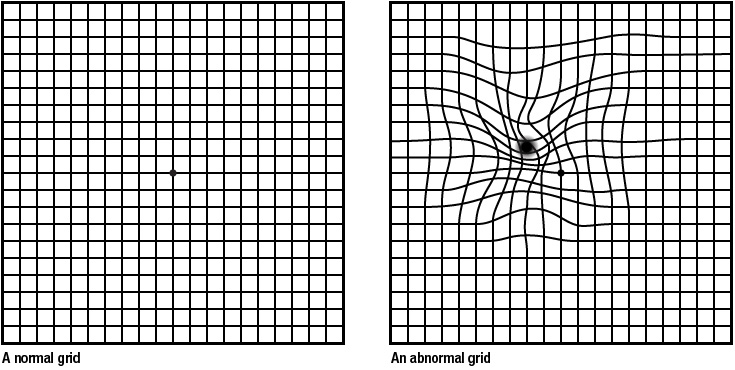
Treatment for AMD
The treatments chosen are dependent upon each individual’s circumstances and stage of the disease. It will generally involve a long-term commitment. Treatment options include:
-
Intravitreal Eye Injections
-
Laser Treatment
-
Dietary Changes and Supplements
